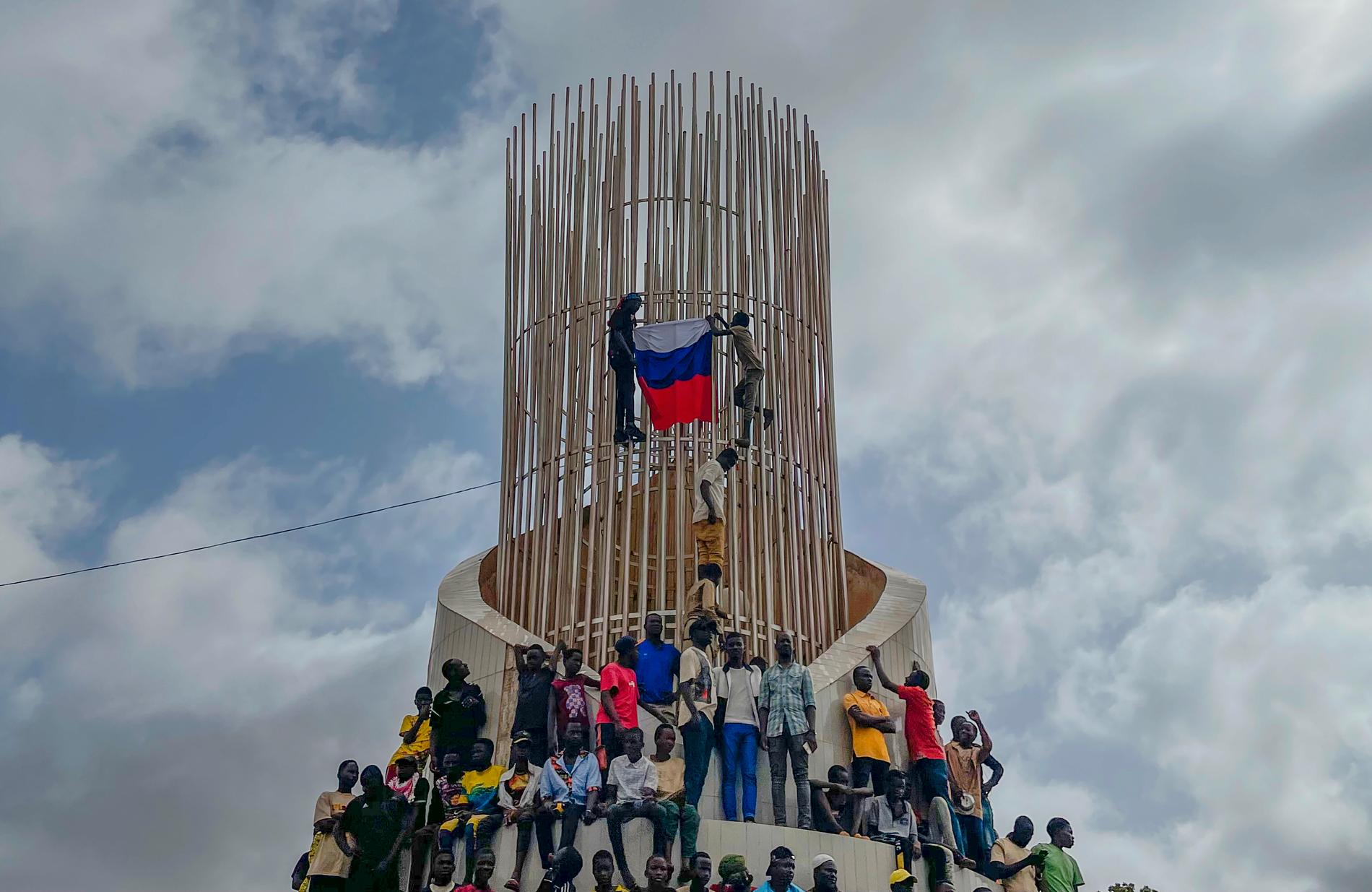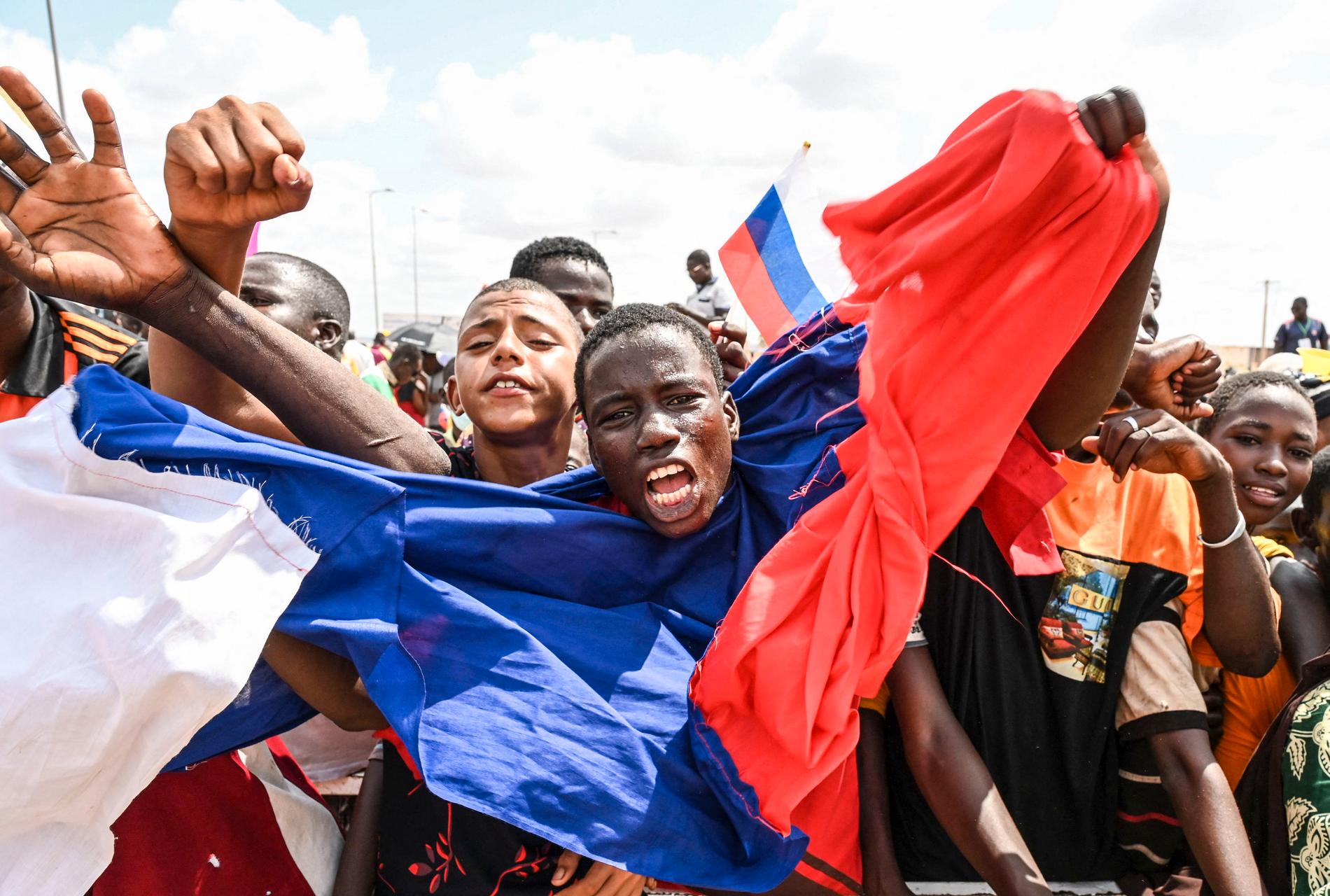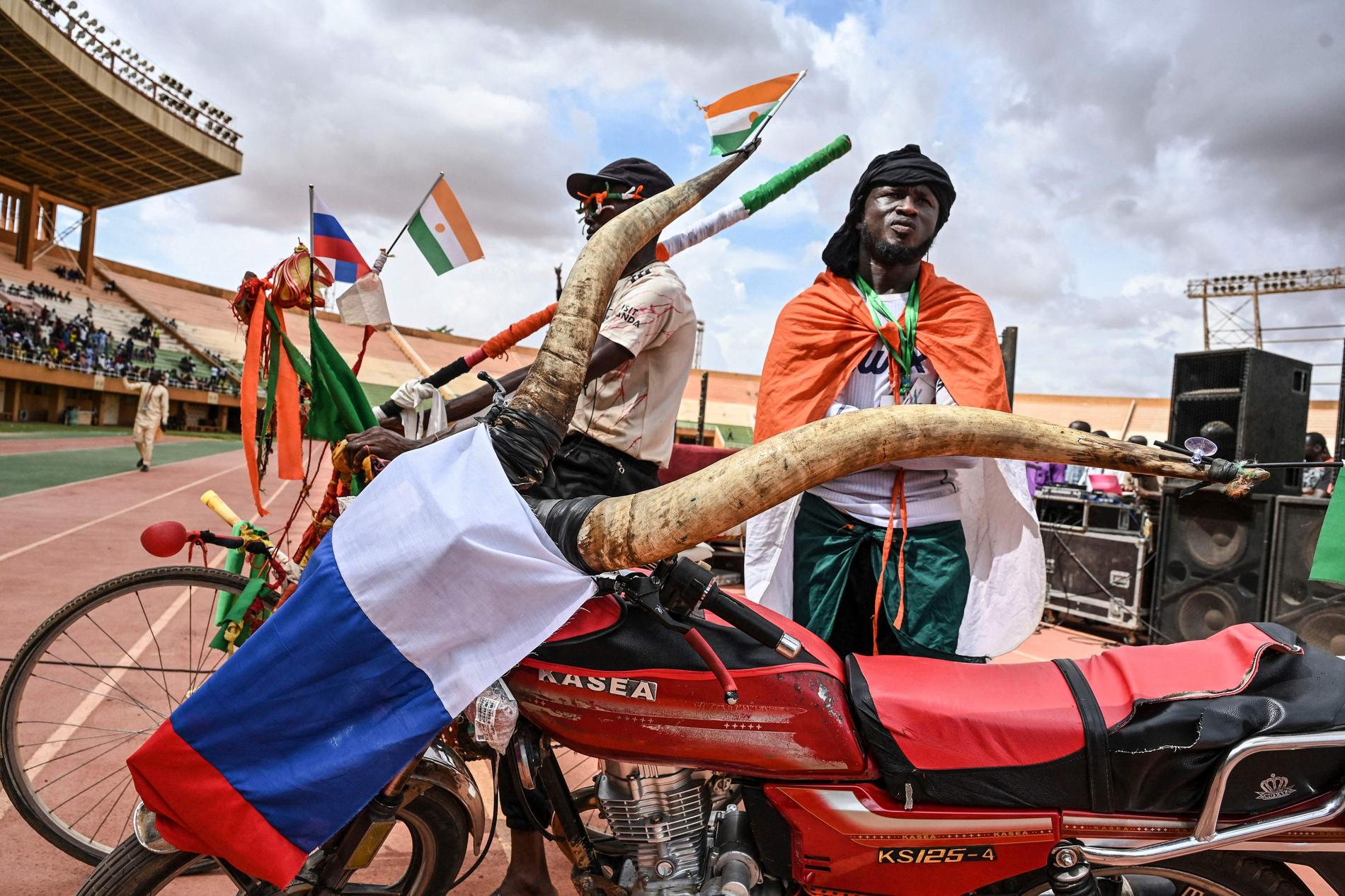
Russian flags have become a common sight in places thousands of kilometers away from Russia’s borders.
- Russian flags are becoming increasingly popular in West African cities, with increasing demand in the region.
- Flags are used, among other things, on parade trains and as decorations in taxis, and this phenomenon has been going on for some time.
- The flag is particularly popular in countries such as Mali, Niger, Guinea and Burkina Faso, which were former partner countries of the West and witnessed military coups.
- Russia’s growing influence in West Africa may be the result of cultural cooperation led by the Russian Wagner Group, and perhaps disinformation campaigns.
- Many in Niger feel disappointed about the failure of Western countries to act against the ongoing violence, which leads to a lack of trust, especially towards France and the West in general.
In the markets of West African cities, new flags in white, blue and red are constantly appearing. The demand for Russian flags in the region is growing rapidly.
Reports say the three colors are used on everything from show trains to the decorations on the dashboard of taxis The New York Times.
The phenomenon of Russian flags in West Africa has been around for some time, explains junior researcher at the Norwegian Foreign Policy Institute (NOPE), Andreas Linde Kröknes.
The countries concerned were previously countries cooperating with the West.
-The flag is especially popular in countries such as Mali, Niger, Guinea and Burkina Faso. All of these things have in common that Western cooperation countries have witnessed military coups, says the researcher.
Many have wondered how many Russian flags have ended up in West African cities. But the so-called “cultural cooperation”, initiated by Russia’s notorious Wagner group, may be part of the explanation, says the researcher.

Beer and vodka
Researcher Kruknes explains that the rise of Russian influence in West Africa may come largely from disinformation campaigns run by the Wagner Group from its headquarters in Bangui, Central Africa.
– From the headquarters, Russia broadcasts everything from Russian literature to films, and they have intensified this a lot lately. Wagner also produces beer and vodka, and they are said to have begun farming.
Morten Boas, another Nupe researcher, compared what the Russians were doing in West Africa to what the British were doing through the East India Company in the 18th century, where military activity was mixed with trade.

Disappointed with Western countries
In Niger, many are disappointed with the failure of Western countries, led by former colonial power France, to stop the ongoing violence.
In recent weeks, hundreds of foreigners, including diplomats and emergency personnel, have left the country.
– Hence, there is a fundamental mistrust of both the United Nations and the West in general and France in particular, which has not worked during its many years of existence. Then, Kruknes explains, a field of action opened up that Russia would be happy to fill.
The person ready to take advantage of this is the man who was known as Prigozhin’s right-hand man in Africa, the Wagner leader Dmitry Seti.
– He’s a character who has his finger on the pulse, and is quite capable of creating a story based on a well-known refrain that resonates in a region where people have a million reasons to curse, says Krokness.

That’s why it works
The reason West Africans are “buying” the Russian charm offensive is roughly two-fold: Kruknis explains.
1: These are countries that face enormous security challenges, lack economic growth, and cannot choose on the top shelf who they want to cooperate with.
2: This can be read as a form of protest: a person becomes upset with the former partner, and goes to the opponent.
The ruling elite in these countries want someone who can guarantee their security, and who may also remember the role the Soviet Union played in the region during the Cold War. The researcher believes that it still provides a certain amount of capital for Russia, adding:
-For most people, it is tempting for someone to come along and say they will solve the situation.
Is there reason to believe that Russian influence will grow in West Africa? VG wonders.
– I think we are now facing a crossroads in terms of how the West develops its strategy in this part of Africa. You see, what you’ve done so far may not have worked well. I would say that in all areas where major security policies and development initiatives end in failure, the field for action will open up for Russia.
But even though we now see Russian flags flying high in West Africa, it is important to remember that there are several examples of countries where Russia and Wagner have not succeeded in their operations, says Africa researcher Krockness.
– I have not yet seen any signs of improvement in conditions for the civilian population in the countries where Wagner operates. On the contrary.

“Organizer. Social media geek. General communicator. Bacon scholar. Proud pop culture trailblazer.”
